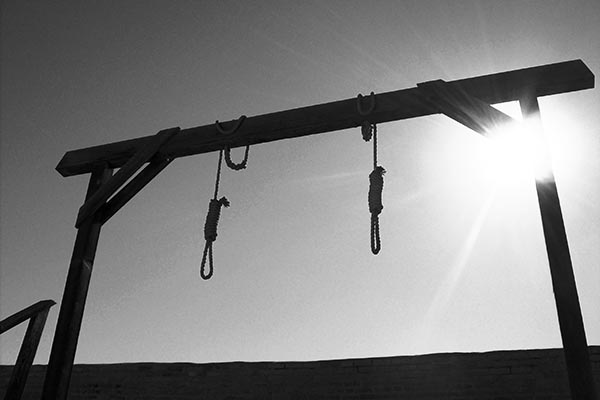
Matthew Lee High
New data shows Pakistan is now the fifth most prolific executioner in the world
Less than three years since lifting a moratorium on the death penalty, Pakistan has executed an average of 3.5 prisoners per week, emerging as the fifth most prolific executioner in the world.
In findings released online on Thursday, the non-governmental Justice Project Pakistan has revealed that between December 2014 and May 2017, Pakistan executed 465 people—83 percent of them in Punjab province. Khyber-Pakhtunkhwa was the second most prolific executioner, accounting for 7 percent of all hangings, while Sindh was third with 4 percent. Balochistan and Pakistan-administered Kashmir both accounted for 1 percent of all executions, while there is no data available for the remaining 4 percent.
The JPP’s findings, available here, show that the death penalty has done little to deter crime, belying the government’s claims that its primary goal is to discourage future crimes through the use of the death penalty. Its report notes that despite coming in a distant third in terms of total executions, Sindh has witnessed the greatest drop in murder rates—likely in part due to an ongoing Rangers-led military operation and the fact that it had a higher murder percentage than its neighboring provinces.
The data also seems to suggest that executions are motivated by politics—they increase noticeably in the immediate aftermath of terror attacks. More troublingly, there is also a marked rise in executions when the number of prisoners exceeds the capacity of the prisons, suggesting it is being used as a form of ‘population control.’
“Pakistan’s troubling and continued use of the death penalty has continuously fallen short of meeting its international human rights commitments and fair trial standards, as well as our own domestic laws,” says Sarah Belal, the executive director of JPP. “The death penalty is not an effective tool to curb militancy and crime, as the data clearly shows, yet has been increasingly used for political gain.”
Her views are borne out by the data, which also brings into question the government’s claim that is only exercises the death penalty in terrorism cases. The majority of death sentences have been handed down by the District and Sessions Courts, which do not have jurisdiction over terrorism cases. Pakistan’s Anti-Terrorism Courts accounted for only 16 percent of executions.
Next week, on July 11, Pakistan will appear before the U.N. for review over whether it is upholding the right to life for all its citizens under the International Covenant on Civil and Political Rights. Pakistan’s resumption of the death penalty is one of the key issues that will be taken up by the Human Rights Council committee.
